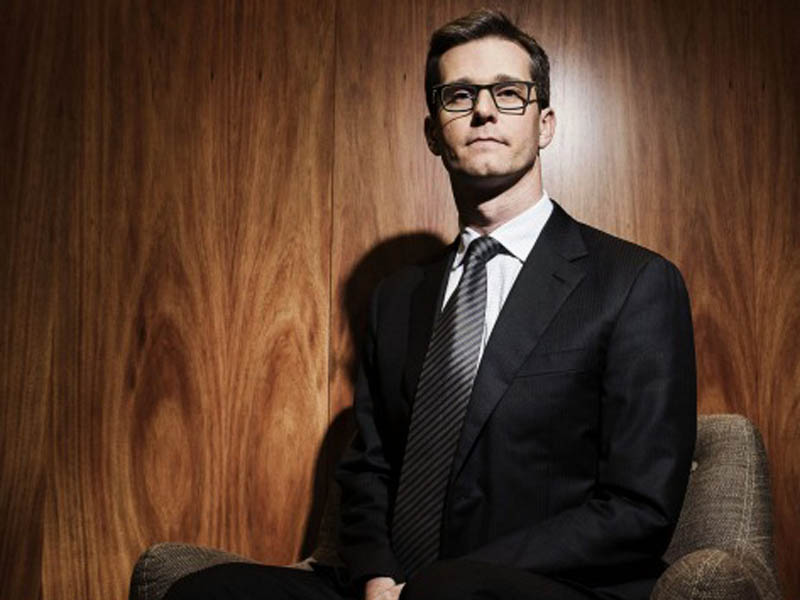There is a very 20th century melancholy hard-wired into the Australian psyche that has stood in the way of global opportunities for digital products and services, according to Alpha Beta director Andrew Charlton.
The world around us is on fire with ideas and activity as our national competitors seek to exploit digital opportunities, and yet in Australia we remain strangely reluctant.
The familiar lament, Dr Charlton says, is that we are a small market and that we are far-away. That our distance from the world means we can’t manufacture competitively. That our high wages mean we can’t compete. That we are small, and so we cannot build.

This manifested itself in industry policy as a decades-long fixation about whether or not Australia could support a car industry.
“The eternal economic angst of the 20th century in Australia was the ‘tyranny of distance’,” Mr Charlton said, “We were a small, isolated market and we have looked at our economy through that prism.”
“The tyranny of distance has got into our heads as a nation, and we doubt our ability to create companies of global significance,” he said. “And I think that’s very damaging.”
And this historical lament is still a drag in industry development policy today. There remains a strange reluctance to embrace data technologies and to place big bets on the bleeding obvious. Our national self-image remains at the oily-rag end of industry.
Dr Charlton co-authored the Digital Innovation report on behalf of CSIRO data business unit, Data61. The headline number that was trumpeted was an identified $315 billion opportunity for Australia over the next decade if it chooses to get real about competing for a bigger share of digital markets driven by data technologies.
The report does not set a high bar for achievement. That $315 billion headline number is not based on Australia smashing a performance out of the park.
This is not a moon-shot number requiring devilishly clever industry policy and a yard of luck to achieve. The $315 billion reward is what awaits Australia if it can just manage to be average.
If we can match the OECD average in four areas, as measured against GDP – on digital capital investments, multifactor productivity, domestic digital industries, and on digital exports.
Across all four areas, Australia is currently 34 per cent below the OECD average – meaning we are capturing 34 per cent less value in the fastest growing industries in the global economy. We are not taking our share.
In digital exports, our numbers are shocking. We are one-fifth the size of the OECD average. This number should be ringing massive alarm bells.
Speaking at the D61+Live conference in Brisbane this week, Data61 chief executive officer Adrian Turner says Australia is at a cross-roads, and that time is running out. The problem, he says, is that we are behind today, and every day that we don’t mobilise in a serious and coordinated and strategic way “is a day where we fall further behind.”
“Because we substantially missed the last wave [of information technology] we have substantially further to catch up. There is a problem here with the volume of people with the right skills, and know-how in things like product management and scaling,” Mr Turner said.
“We don’t have the muscle memory as a country. And so every day that we don’t act creates a widening delta.”
For policy-makers, Andrew Charlton has urged that Australia does not try to simply copy other successful ecosystems around the world. It does not work like that, he says, urging a more sober assessment of where Australia enjoys existing relative strengths.
“That’s what makes this conversation so fascinating. The combination of digital and an existing strength like agriculture or healthcare [is exciting]. Ditto mining,” Dr Charlton said.
“Australia’s path to capturing this value has to be quite a sophisticated one. We have to look at what we are good at, and how we build digital into that,” he said.
Adrian Turner has urged a wider reflection about how we build our future prosperity, and a broader conversation across the population.
“The problem for us is that the drivers for success that led to 27 years of uninterrupted growth are not the drivers that are going to get us there going forward,” Mr Turner said.
“In the past it has been things like natural resources, the cost of labour and the cost of capital.
“In the future, it will be things like how effective are we with our research and development and the translation of our R&D to create new breakthroughs that we can take to the world,” he said.
Do you know more? Contact James Riley via Email.

